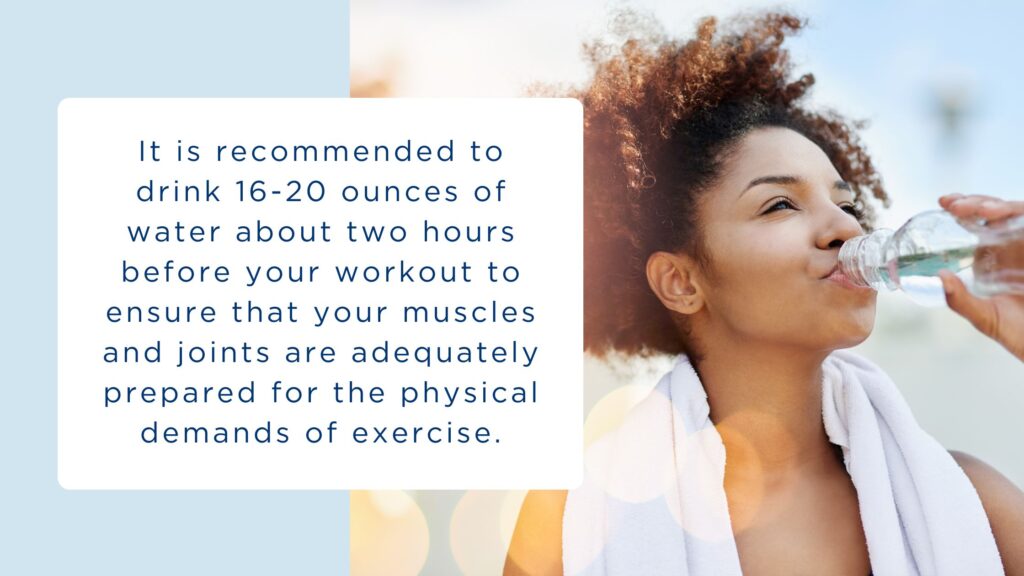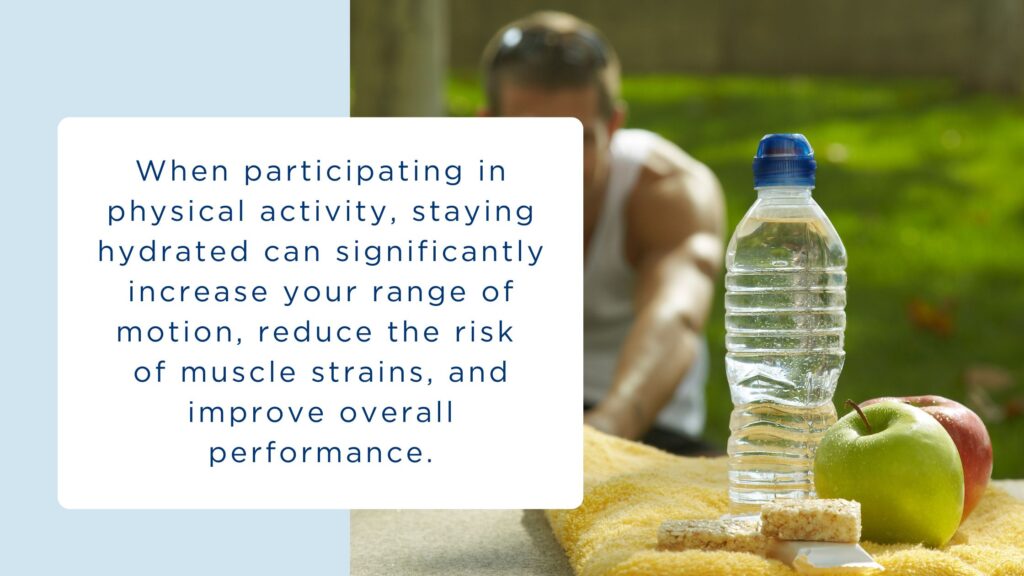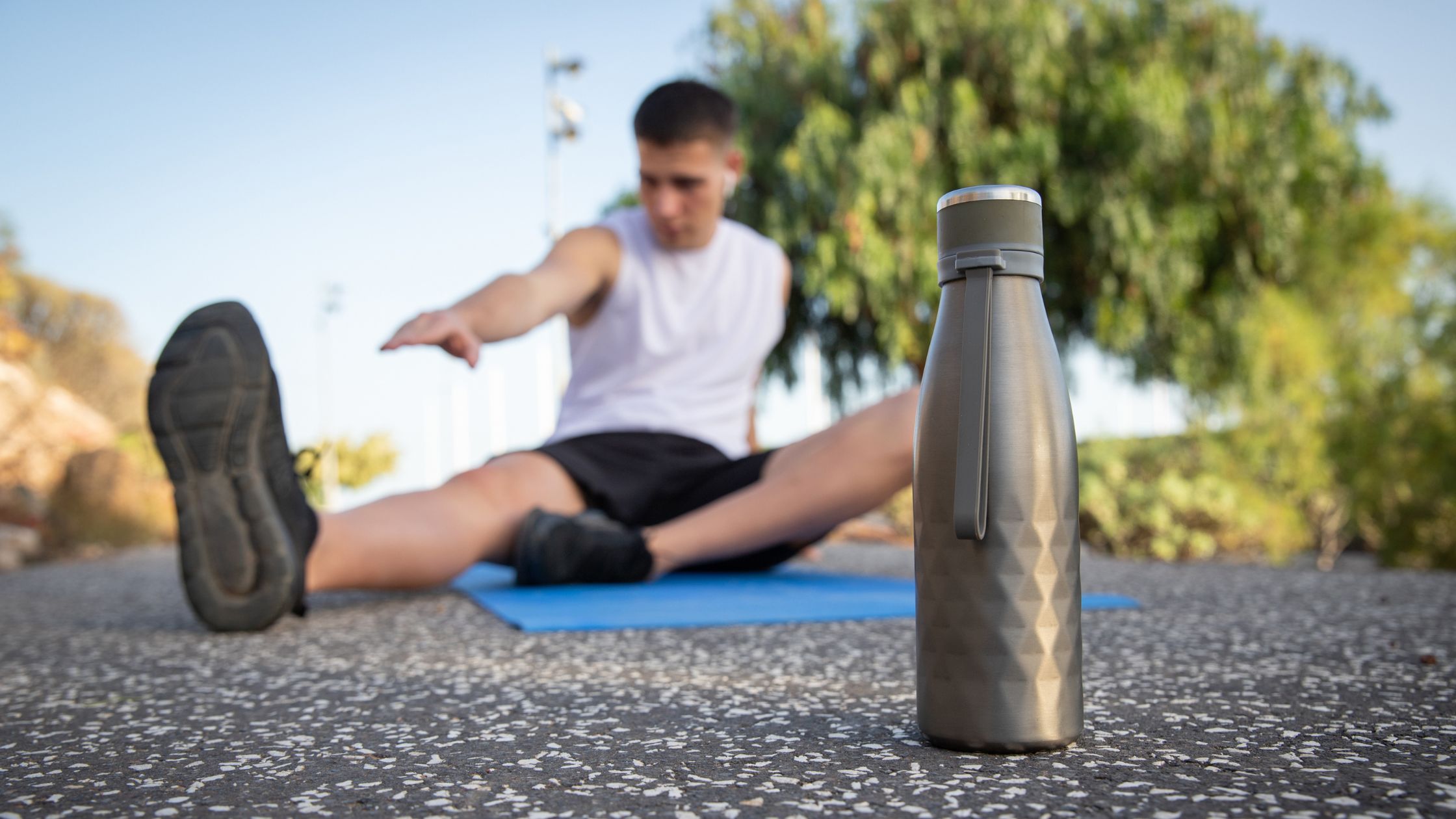Ever wonder why your stretching routine sometimes feels like a struggle?
The answer might be simpler than you think. Let’s explore how staying properly hydrated can make a huge difference in your stretching and overall mobility.
Maintaining proper hydration and incorporating regular stretching into your daily routine are essential components of a healthy lifestyle. Hydration is crucial for maintaining bodily functions, improving physical performance, and aiding in recovery. It helps regulate body temperature, keeps joints lubricated, and delivers nutrients to cells.
Stretching, on the other hand, enhances flexibility, improves circulation, and reduces the risk of injuries. It helps release muscle tension and prepares the body for physical activity. Together, staying hydrated and stretching regularly can improve overall well-being, boost energy levels, and enhance physical performance.
The Hydration-Flexibility Connection
Did you know? your muscles are about 75% water. Water is lost continuously through our skin, urine, waste, and sweat. So, staying hydrated is crucial for your stretching routine. When you’re properly hydrated:
- Your muscles become more pliable.
- Your joints move more smoothly.
- You experience less friction in your tissues.

Maintaining water and electrolyte balance is crucial for athletes, enhancing both performance and recovery.
The Science Behind Stretching and Hydration
When you’re dehydrated, your body produces less synovial fluid, which lubricates your joints, and your fascia (the connective tissue surrounding your muscles) becomes less flexible, making your muscles more prone to cramping and injury. By staying hydrated, you’re creating an internal environment that’s primed for stretching and flexibility, maintaining the viscosity of synovial fluid and keeping your muscles and connective tissues supple and ready for action.
Studies have shown that hydration significantly impacts muscle function and flexibility. Maintaining proper hydration is essential for optimal cognitive and physical performance. Proper hydration benefits different activities in unique ways.

For example, while playing golf you can improve your flexibility for a better swing, enhance your endurance for those long days on the course, and boost your focus and concentration. Even mild dehydration can affect your putting accuracy.
For tennis players, staying hydrated is essential for maintaining better agility, and quick movements, and reducing the risk of heat-related illnesses during matches. It also ensures faster recovery between sets. Remember to sip water regularly during changeovers; don’t wait until you’re thirsty! It will help you stay sharp and agile on the court.
Maintaining good hydration habits is key; don’t wait until you’re about to start your stretching routine to think about hydration. Make it a part of your daily routine. Remember, hydration isn’t just about chugging water right before you stretch. It’s about maintaining good hydration habits throughout your day, every day. So, the next time you’re about to start your stretching routine, ask yourself: “Am I hydrated enough?” Your body will thank you for increased flexibility, better performance, and quicker recovery.
Well, that’s it for now. Thank you for your time. If you’re interested in learning some effective self-stretches, please visit our YouTube channel. Don’t forget to like and subscribe to receive notifications when we upload new videos.
Also, if you want to learn more about our assisted stretching services, please check out the rest of our website. If it’s your first stretch with us, book a new client session now for half the original price!
Finally, explore More Fun Reads in Our Blog Library!
About the author:
Serena Sayavong is a LYMBR Stretch Therapist at Newton. She holds a Bachelor of Science degree in Kinesiology with a minor in Psychology from the University of Rhode Island. Along the way, she has obtained her certification in Adult/Child CPR AED and is LYMBR Pre-Natal Certified.
References:
- Riebl, S. K., & Davy, B. M. (2013). The Hydration Equation: Update on Water Balance and Cognitive Performance. ACSM’s health & fitness journal, 17(6), 21–28. https://doi.org/10.1249/FIT.0b013e3182a9570f
- Popkin, B. M., D’Anci, K. E., & Rosenberg, I. H. (2010). Water, hydration, and health. Nutrition Reviews, 68(8), 439–458. https://doi.org/10.1111/j.1753-4887.2010.00304.x
- Latzka, W. A., & Montain, S. J. (1999). Water and electrolyte requirements for exercise. Clinics in sports medicine, 18(3), 513–524. https://doi.org/10.1016/s0278-5919(05)70165-4
- Berlin, N., Cooke, M. B., & Belski, R. (2023). Nutritional Considerations for Elite Golf: A Narrative Review. Nutrients, 15(19), 4116. https://doi.org/10.3390/nu15194116




